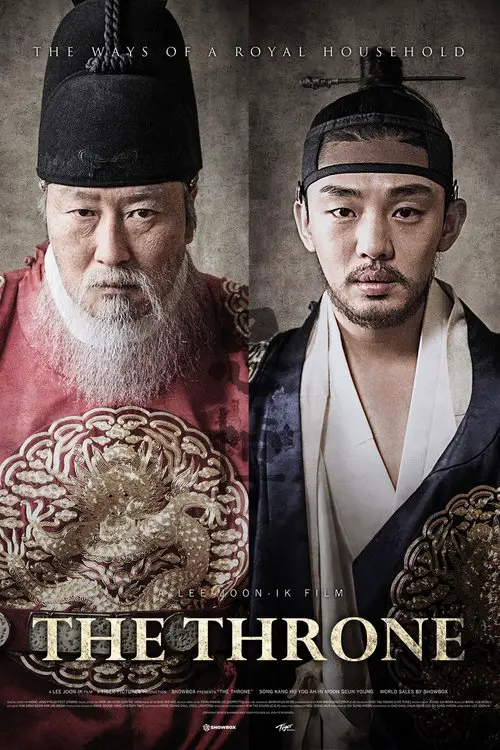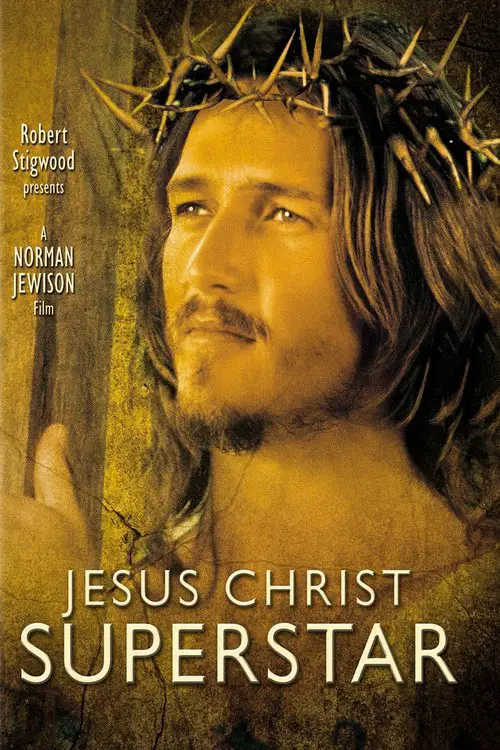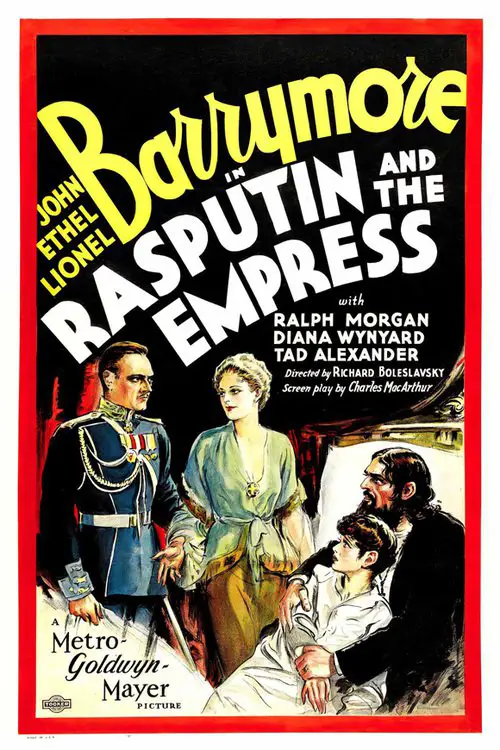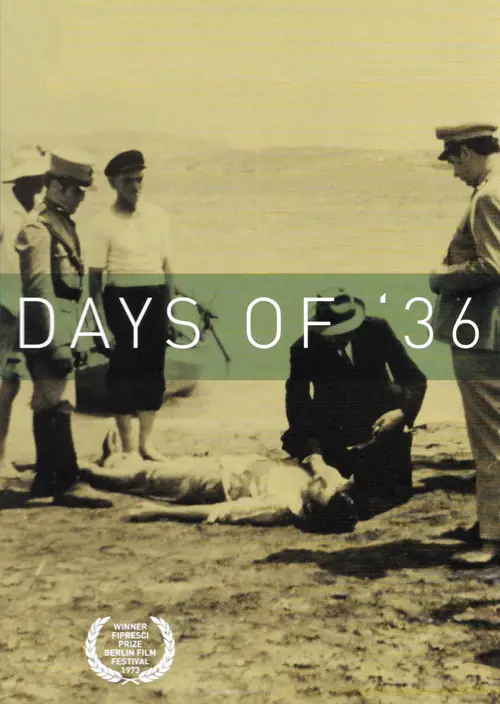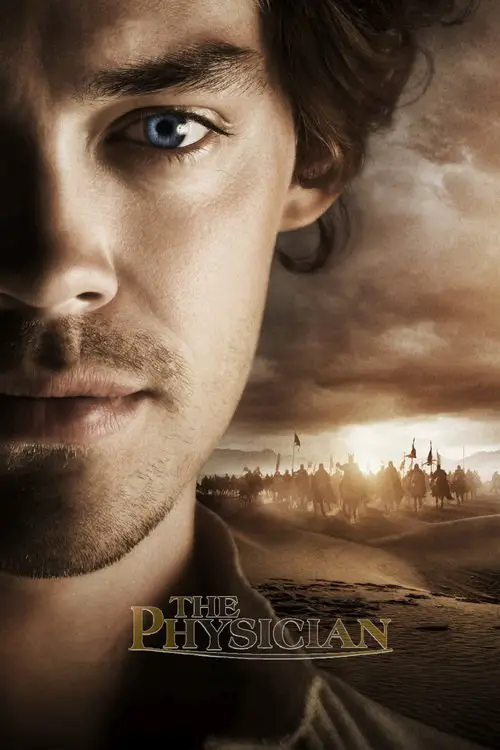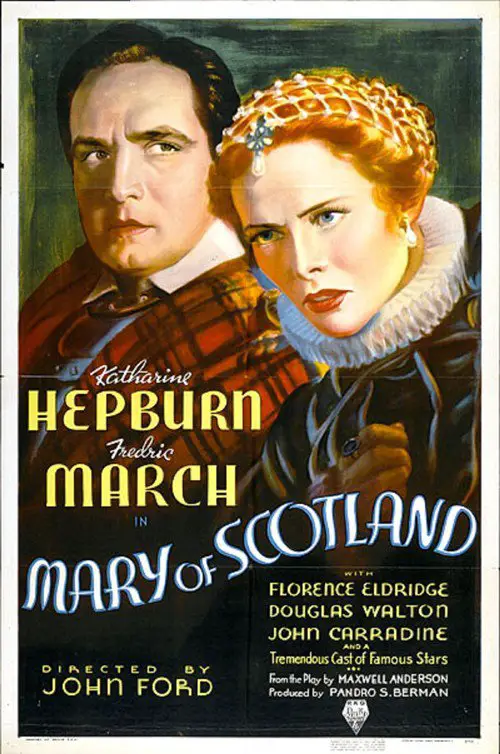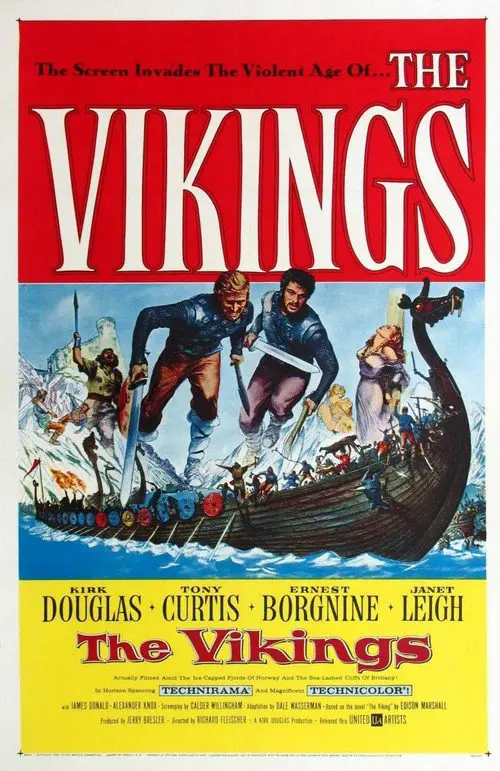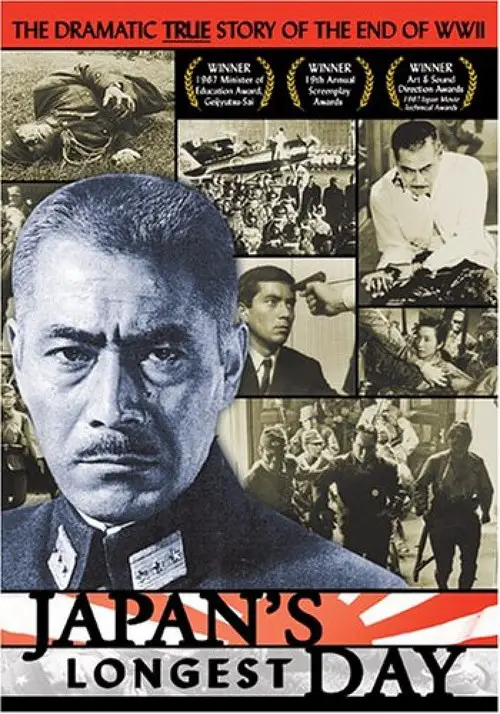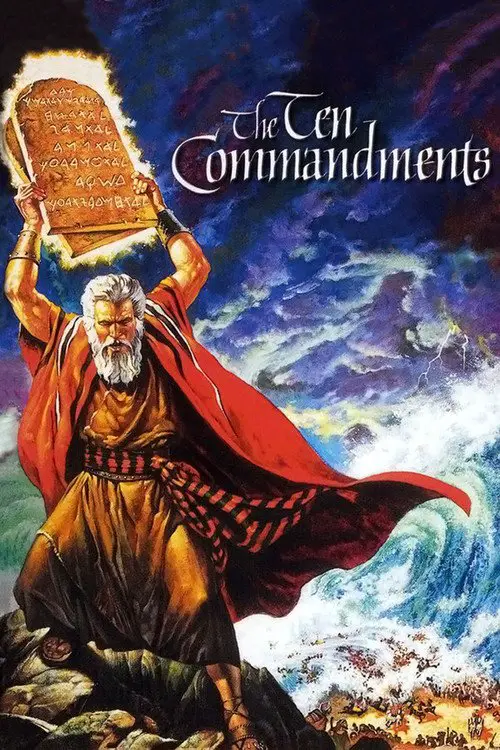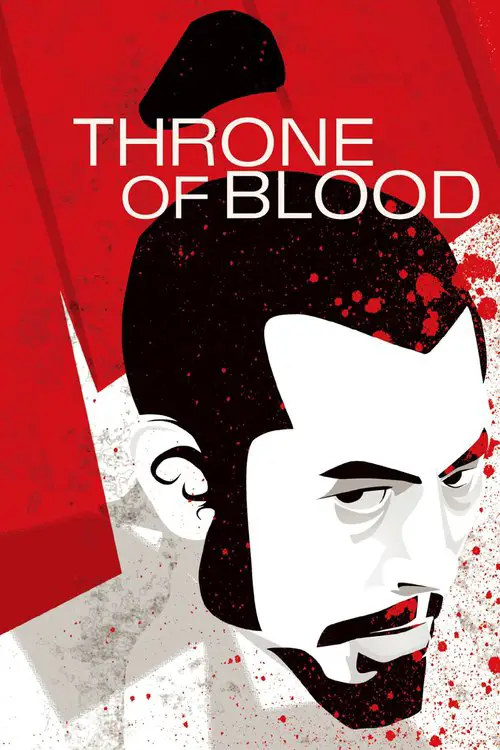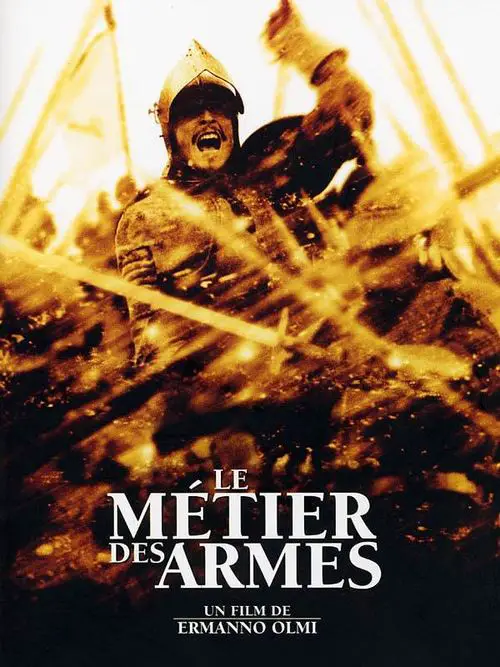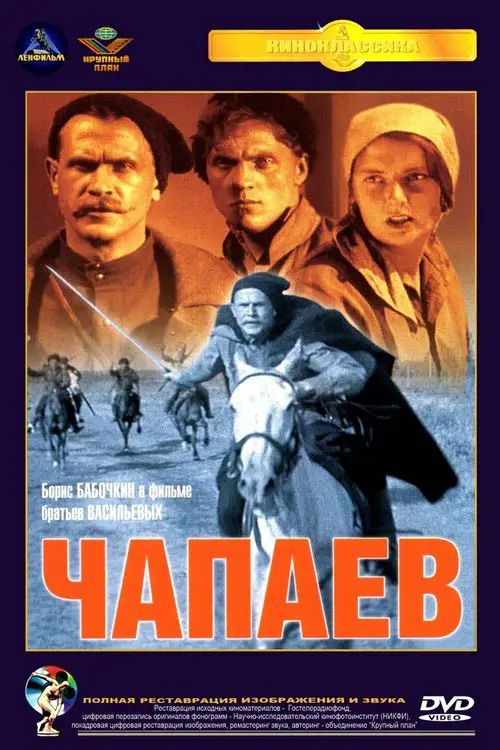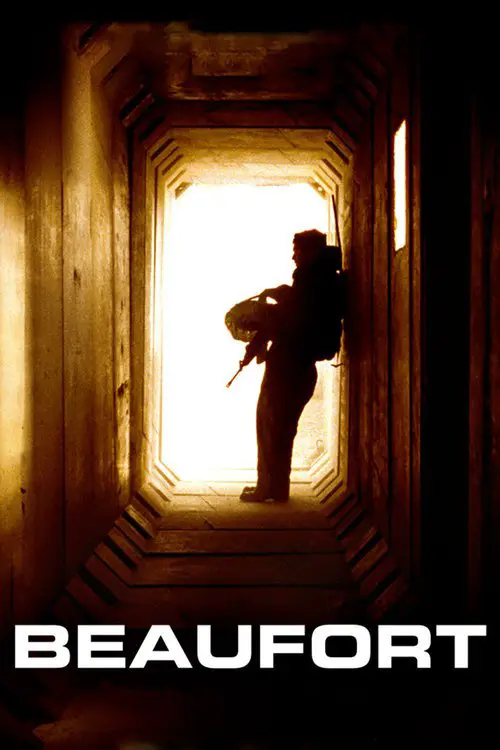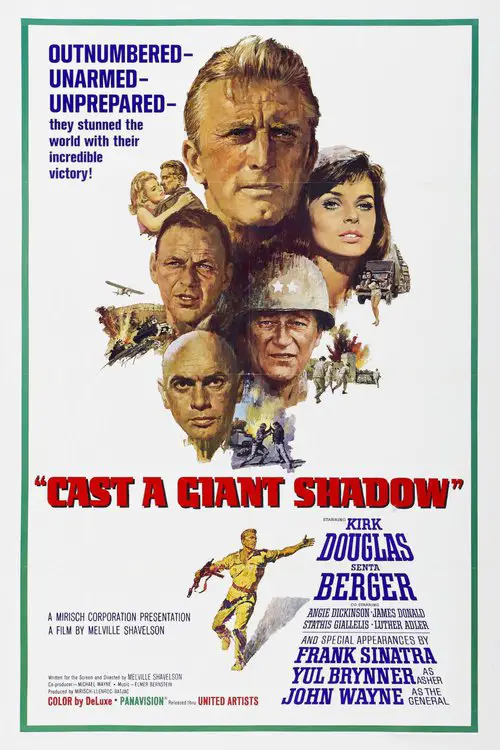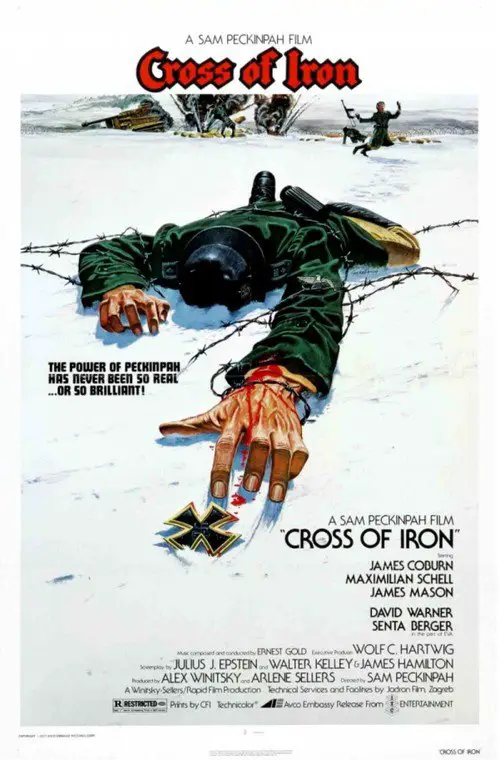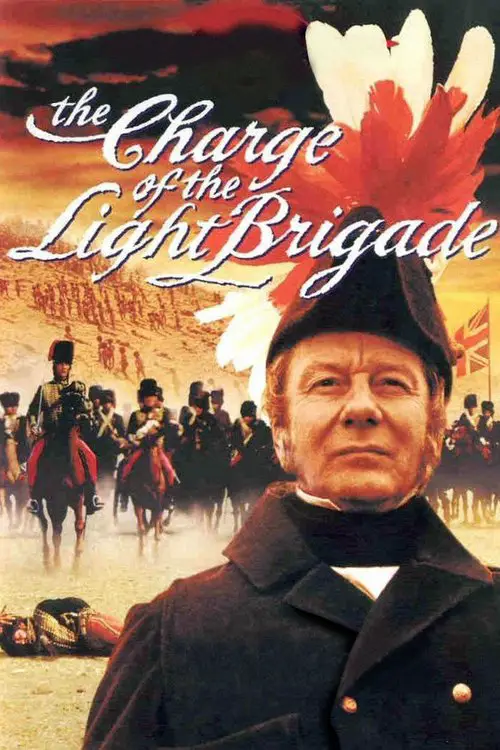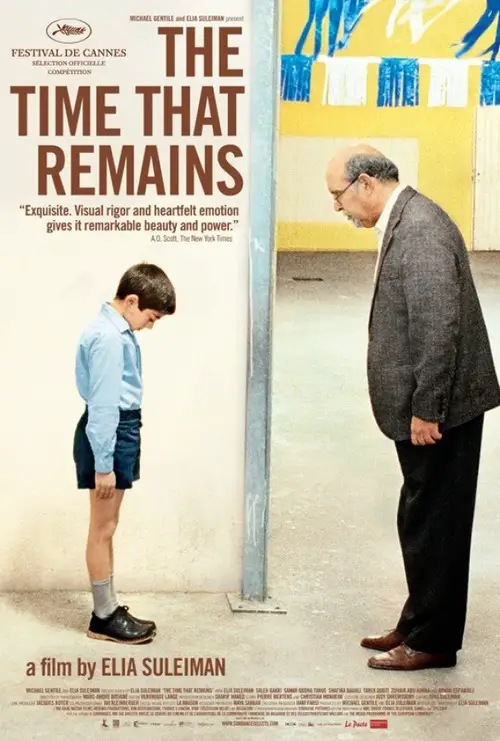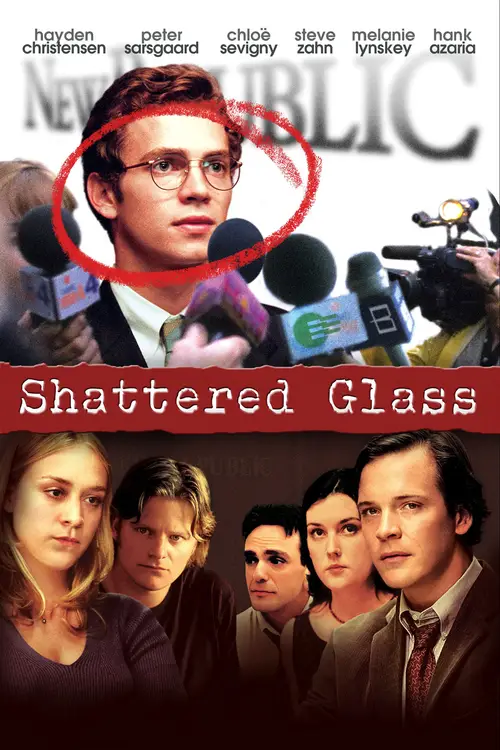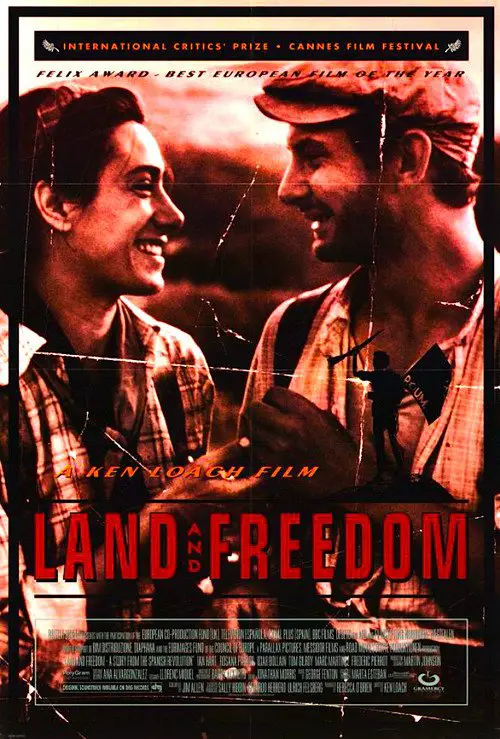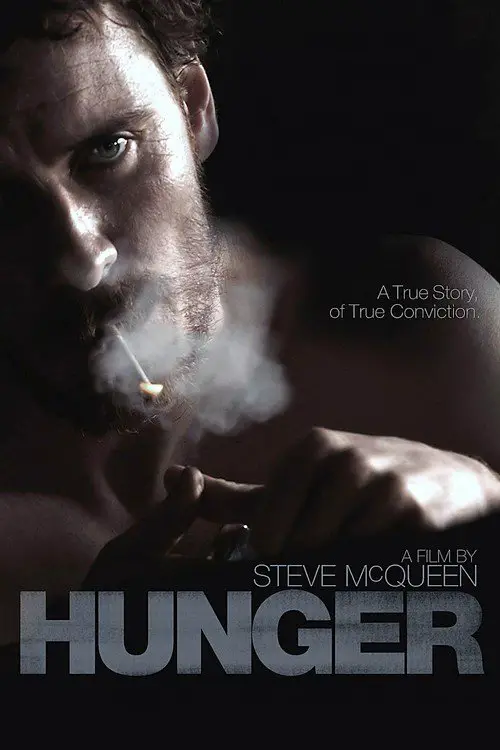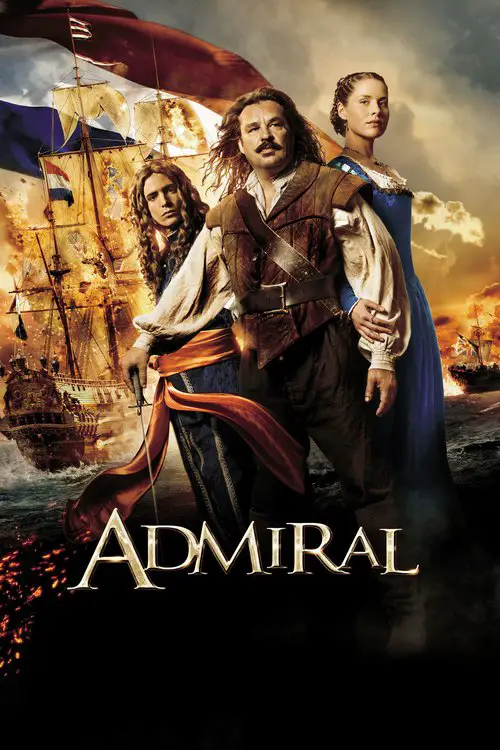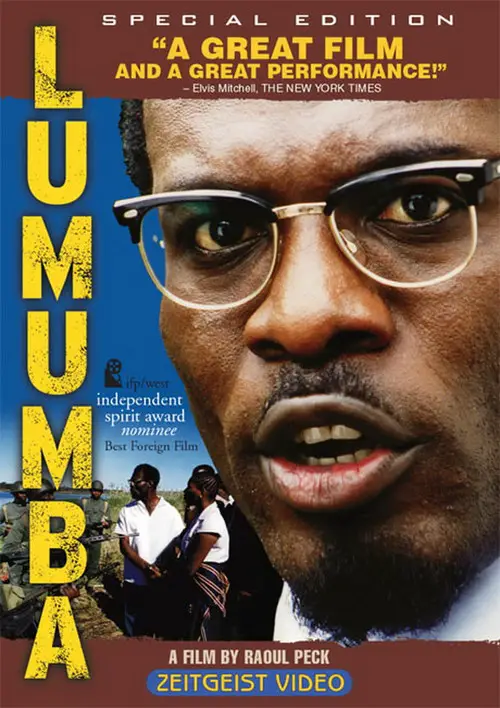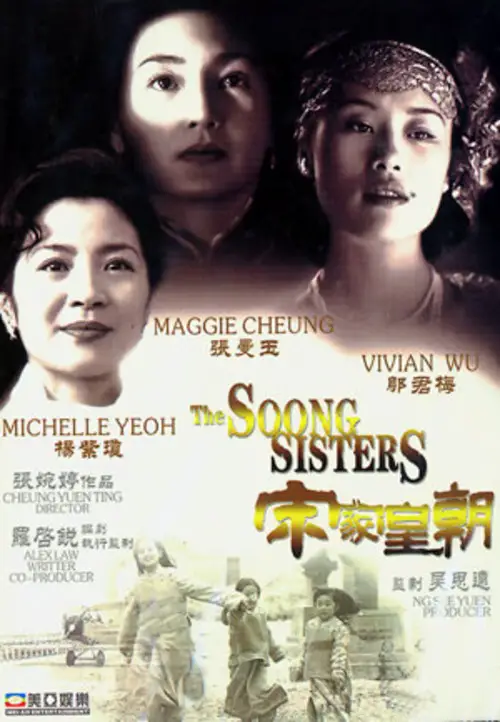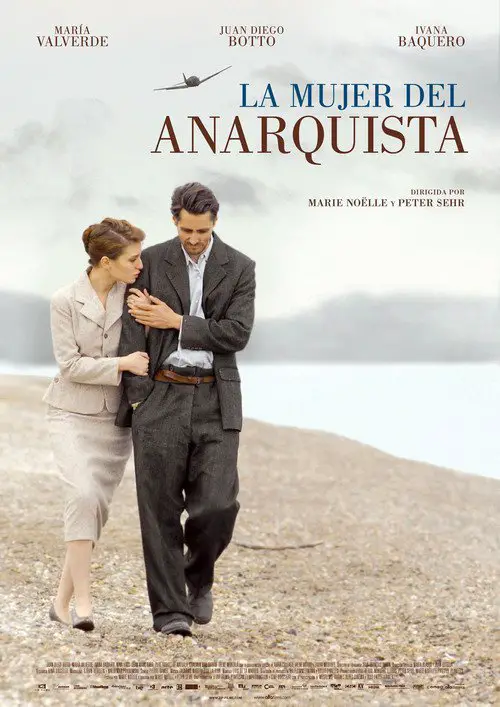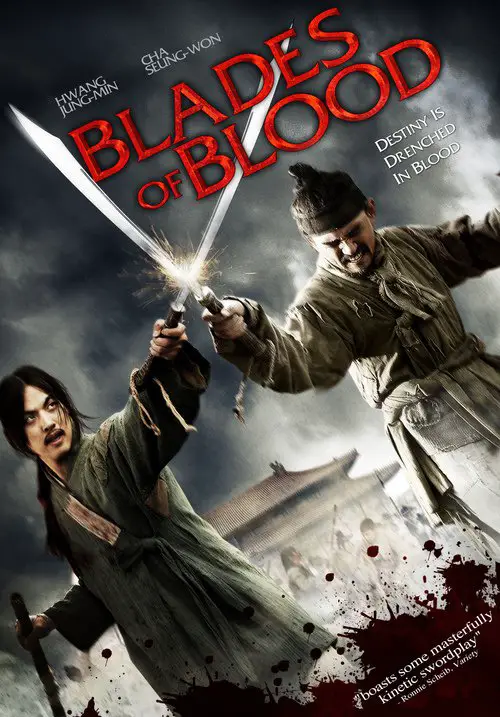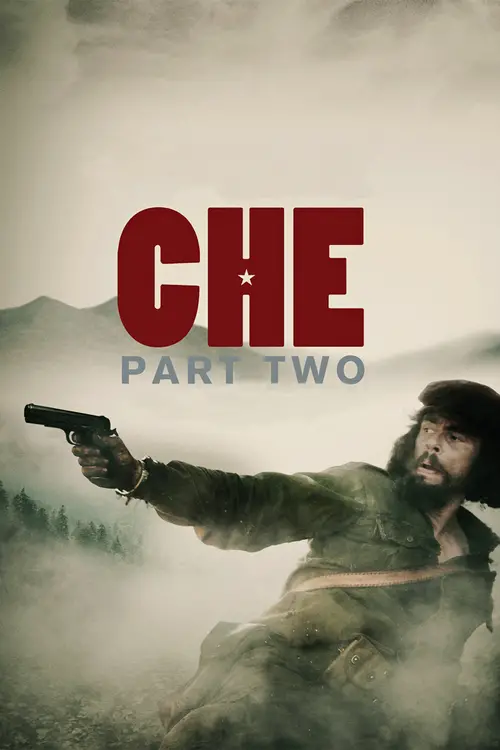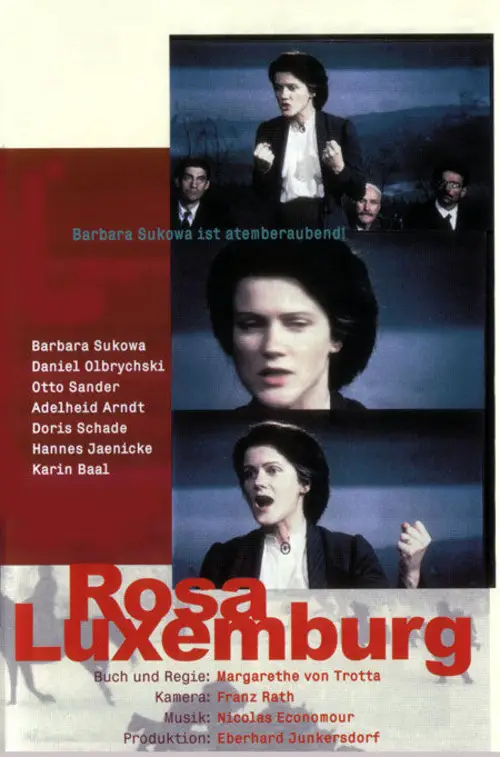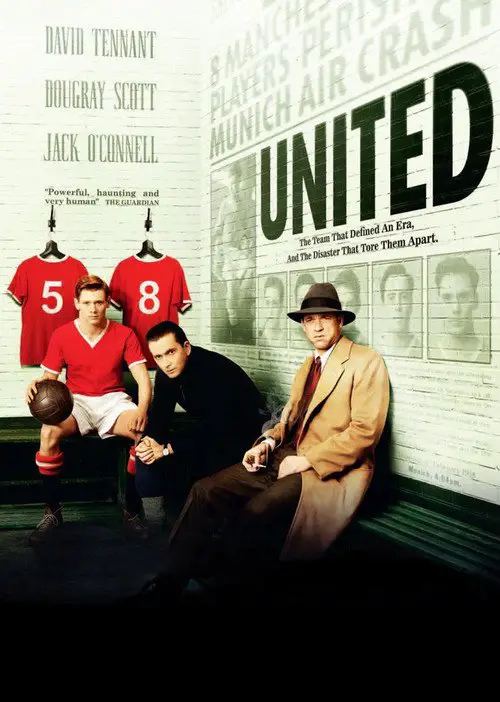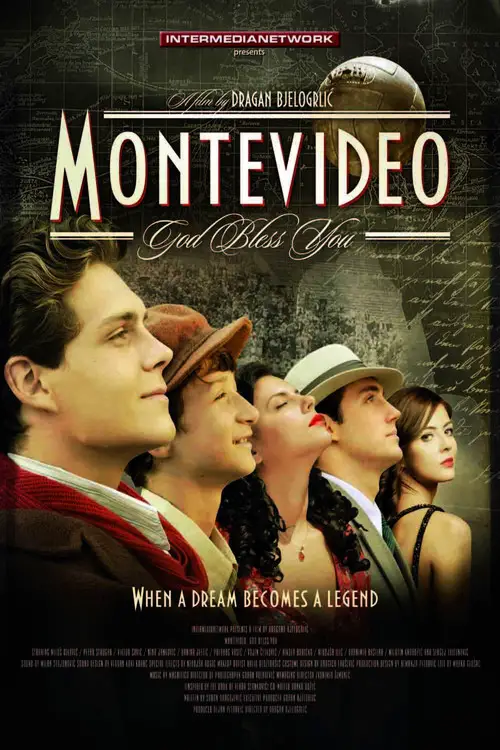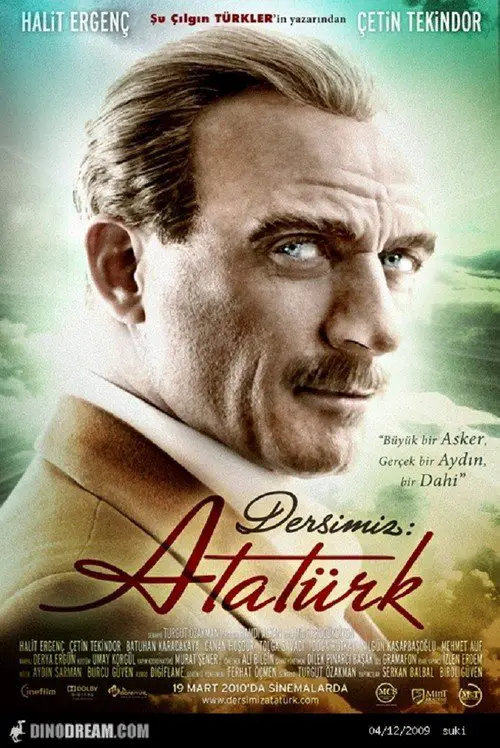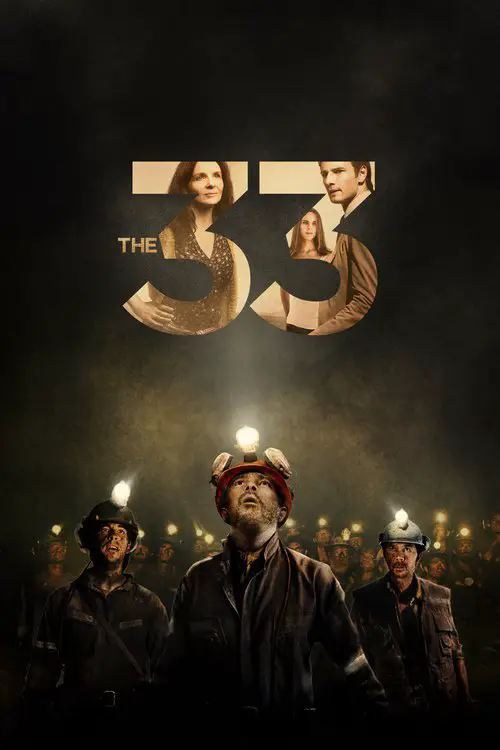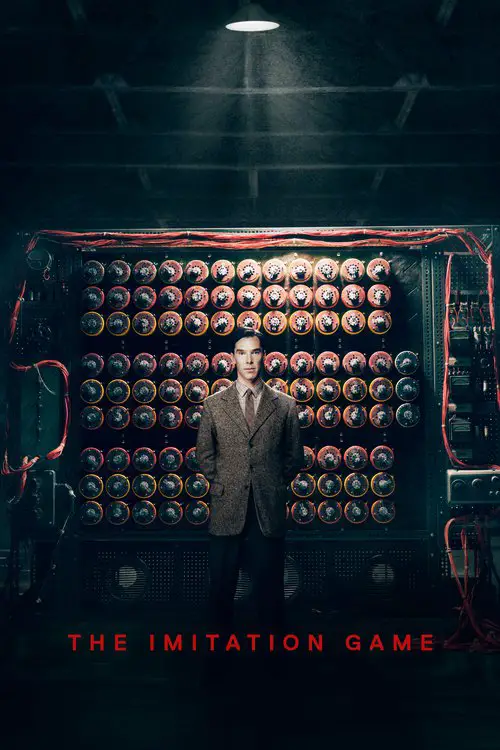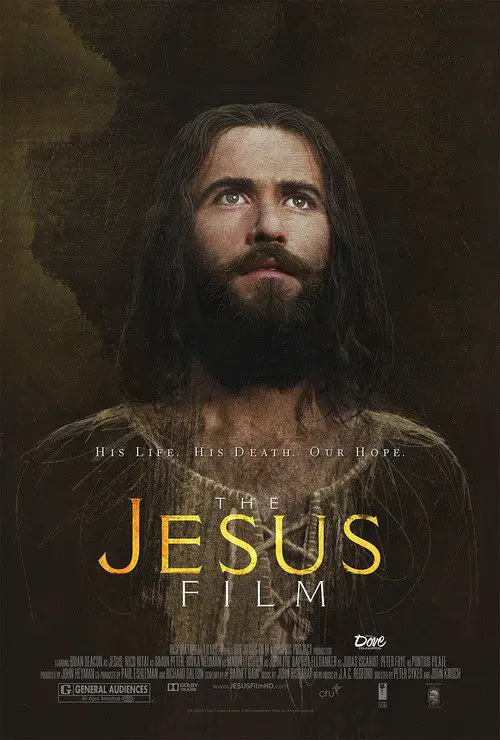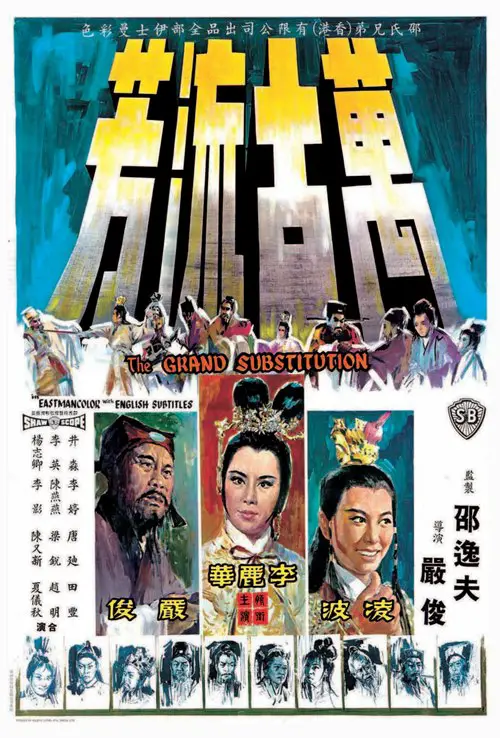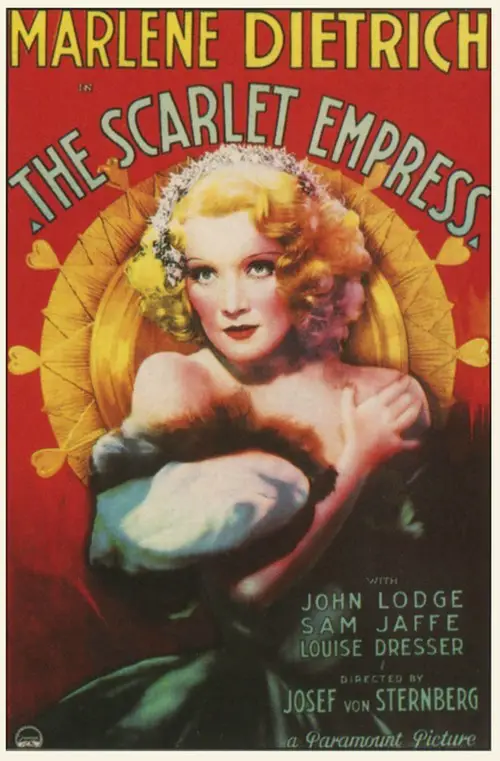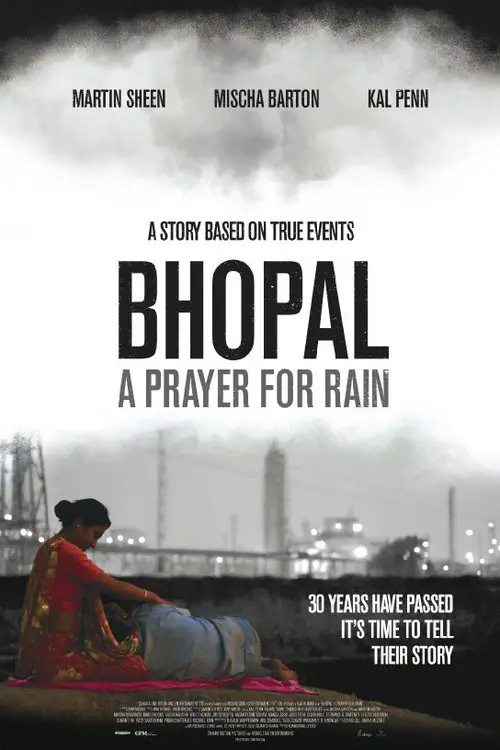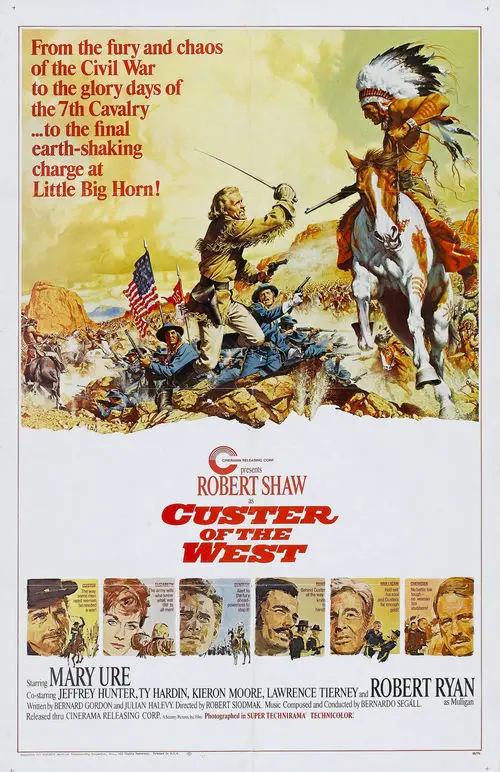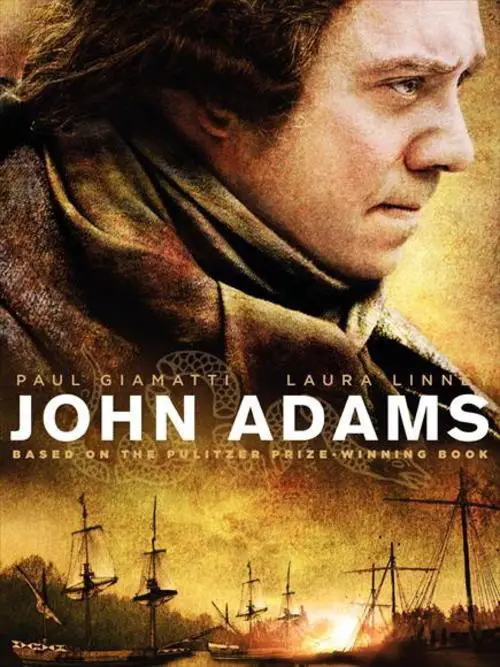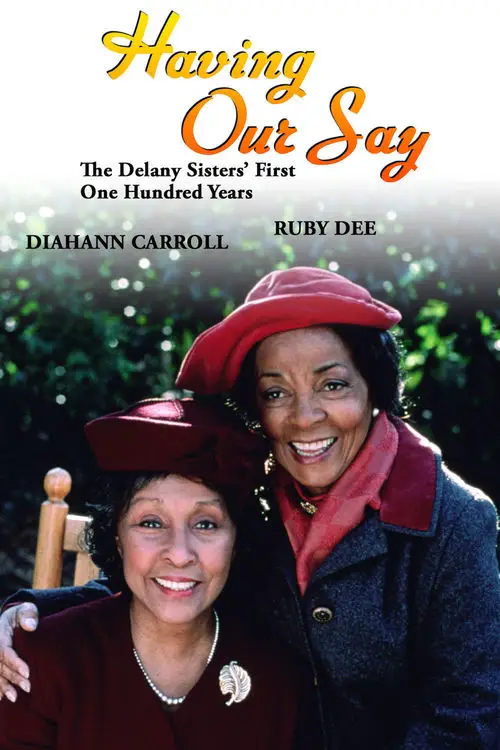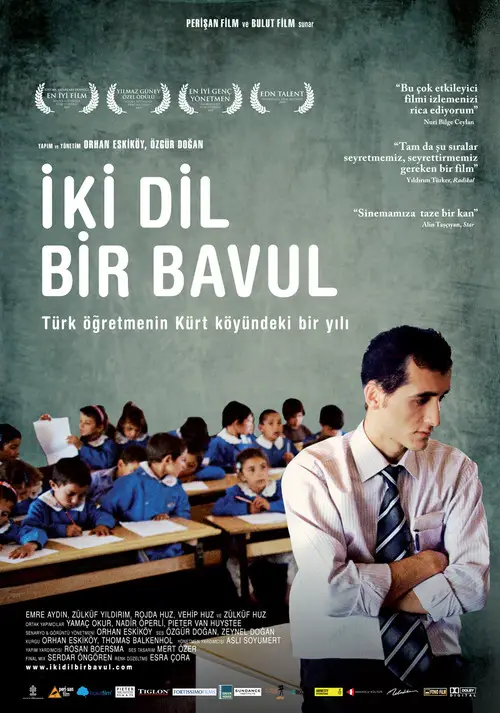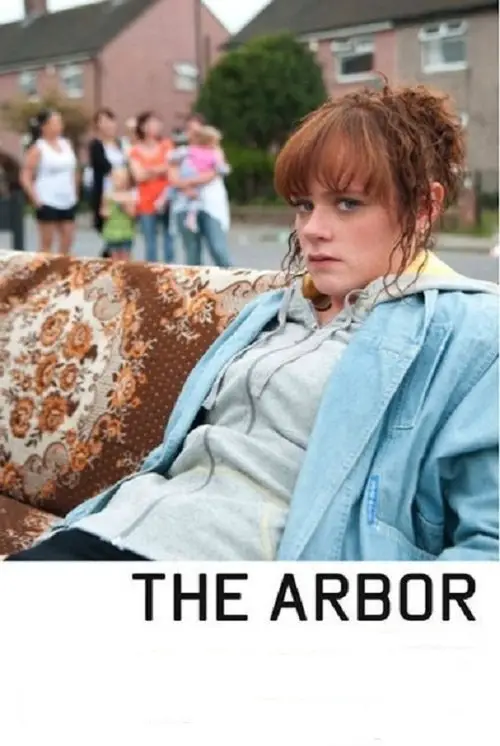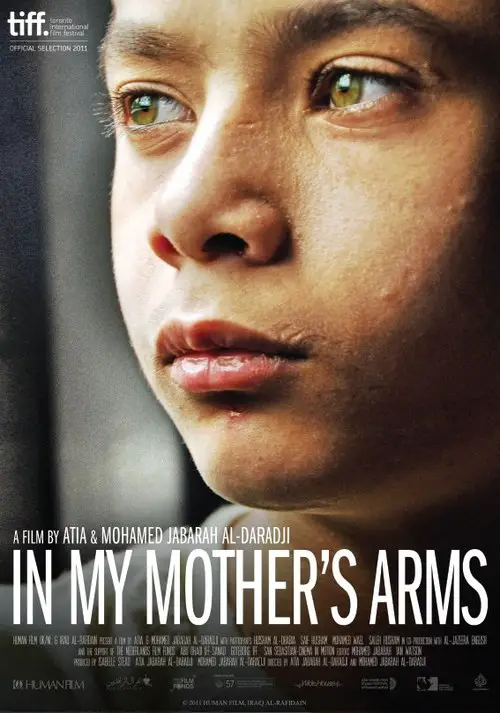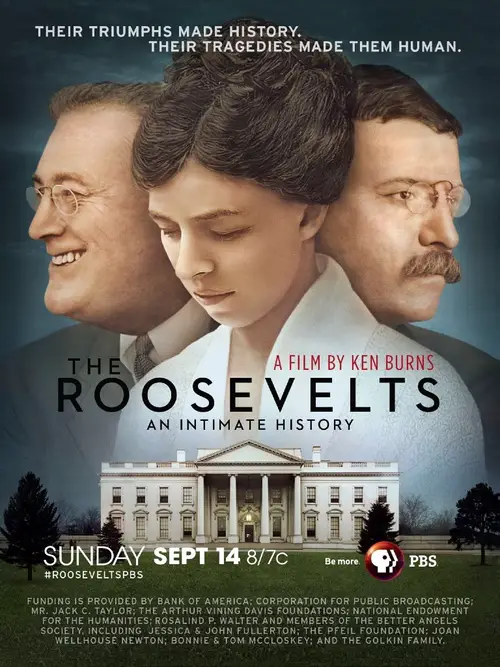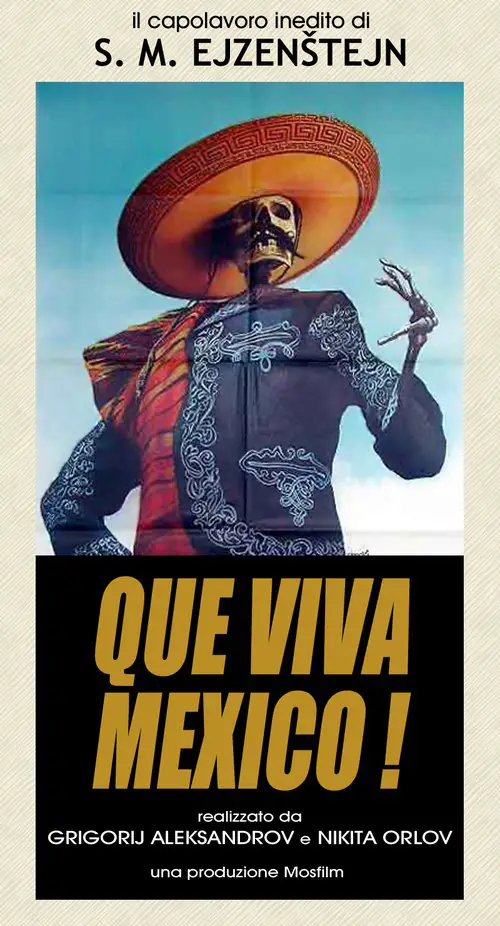Veda - Atatürk (2010)
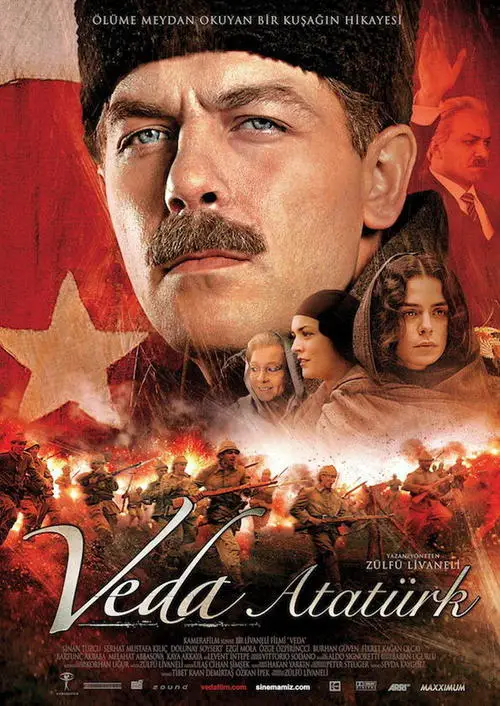
Similar movies
The Birth of A Nation is a silent film from 1915 and the highest grossing silent film in film history. The film tells a romance story during the American civil war. Director Griffith created many new camera effects and innovations in filming the movie. Way ahead of it's time in many regards. That said this movie will offend most people today. The very negative portrayal of newly freed slaves (mostly white actors in black face) went on to create and propagate negative images of blacks of the early 20th century in the Unites States. This film was used as a recruiting propaganda by the KKK until the 1940's.
Rasputin is one of the most interesting people in the world during the early 20th Century. He was also one of the most enigmatic and contradictory. A holy man who was accused of raping a nun, excessive drinking, and being power hungry. Barrymore's portrayal of Rasputin plays this up, plus making claims that he will be Russia. He seems almost like Charles Manson at times in the way he can make someone, especially the Czarevitch, behave like they are totally different people compared to the way they acted before meeting Rasputin.
The story of Rob Cole, a boy who is left a penniless orphan in an 11th-century English mining town when his mother dies of a mysterious illness. Vowing to become a physician and vanquish Death itself, he travels to Isfahan in Persia to study medicine under the great Ibn Sina. Through countless ordeals and challenges, and making many sacrifices along the way, he struggles on unwaveringly. His unflagging quest for knowledge leads to the blossoming of friendship and true love.
Hollywood legends Kirk Douglas, Tony Curtis, Ernest Borgnine and Janet Leigh dazzle in this epic chronicle of brutal rivalry and bloodthirsty ambition. Roaring through the ninth century with powerful performances and brilliant visual drama, The Vikings is a riveting spectacle of brutal action! Bitter hatred divides two brothers. Prince Einar is the son and heir of a savage Viking chieftain. Prince Eric is his unknowing half-brother, the b**tard offspring of Einar's father and an English queen. When the Vikings kidnap a princess, her beauty inflames the desires of both men, forcing a bloody duel that decides their fate... and the future of the English throne.
Following the detonation of the atomic bombs on Hiroshima and Nagasaki, the Japanese military and the government clash over the demand from the Allies for unconditional surrender. Minister of the Army Anami leads the military officers who propose to fight on, even to the death of every Japanese citizen. Emperor Hirohito, however, joins with his ministers in asking the unthinkable, the peaceful surrender of Japan. When the military plots a coup to overthrow the Emperor's civilian government, Anami must face the choice between his desires and loyalty to his Emperor.
A Victorian surgeon rescues a heavily disfigured man being mistreated by his "owner" as a side-show freak. Behind his monstrous facade, there is revealed a person of great intelligence and sensitivity. Based on the true story of Joseph Merrick (called John Merrick in the film), a severely deformed man in 19th century London.
The film begins with the final moments of the Battle of Dien Bien Phu in 1954, when the final assault of Viet Minh is imminent. The weakened French garrison awaits reinforcements that arrive with a single plane under the command of Major De Clairefons. The outpost commander, Basque Lt. Col. Pierre-Noel Raspeguy (Quinn) fights to protect the group, but the paras are slaughtered as they land
Mikio and Washizu are the commanders of the 1st and 2nd Fortress under a local lord, who reigns in the Spiders' Web Castle. After defeating the lord's enemies in battle, they visit the fortress. Washizu, driven by his wife, conspires and murders the lord, becoming lord of the castle. But his evil deeds come back to haunt him.
In autumn of 1526, the Emperor, Charles V, sends his German landsknechts led by Georg von Frundsberg to march towards Rome. The inferior papal armies, commanded by Giovanni de'Medici, try to chase them in the midst of a harsh winter. Nevertheless, the Imperial armies manage to cross the rivers along their march and get cannons thanks to the maneuvers of its Lords. In a skirmish, Giovanni de'Medici is wounded in the leg by a falconet shot. The attempts to cure him fail and he dies. The Imperial armies assault Rome. The film is beautifully but unassumingly set, and shows the hard conditions in which war is waged and its lack of glory. It ends straightforwardly with the declaration made after the death of Giovanni de'Medici by the commanders of the armies in Europe of not using again fire weapons because of their cruelty.
This film is based on the book about Vasili Ivanovich Chapaev (1887 - 1919) who was in real life the Commander of the 25th Division of the Red Army. Chapaev is an uneducated peasant and a decorated hero in the World War I and later in the Russian Civil War, that followed the Russian revolution. This man of action is fighting on the side of the poor people. His troops consist of peasants, just like him. Unable to write, he can brilliantly demonstrate various battle tactics by moving potatoes on the table. He is street smart. He never lost a battle against the experienced Generals of the Tzar's Army.
BEAUFORT tells the story of LIRAZ LIBERTI, the 22 year-old outpost commander, and his troops in the months before Israel pulled out of Lebanon. This is not a story of war, but of retreat. This is a story with no enemy, only an amorphous entity that drops bombs from the skies while terrified young soldiers must find a way to carry out their mission until their very last minutes on that mountaintop.
An American Army officer is recruited by the yet to exist Israel to help them form an army. He is disturbed by this sudden appeal to his jewish roots. Each of Israel's Arab neighbors has vowed to invade the poorly prepared country as soon as partition is granted. He is made commander of the Israeli forces just before the war begins.
A chronicle of events that led to the British involvement in the Crimean War against Russia and which led to the siege of Sevastopol and the fierce Battle of Balaclava on October 25, 1854 which climaxed with the heroic, but near-disastrous calvary charge made by the British Light Brigade against a Russian artillery battery in a small valley which resulted in the near-destruction of the brigade due to error of judgement and rash planning on part by the inept British commanders.
The true story of Australiaâs most notorious convict, Alexander Pearce and his infamous journey into the beautiful yet brutal Tasmanian wilderness. A point of no return for convicts banished from their homeland, Van Diemenâs Land was a feared and dreaded penal settlement at the end of the earth.
An examination of the creation of the state of Israel in 1948 through to the present day.[Synopsis from the director, courtesy of Cannes Film Festival] : "The Time That Remains" is a semi biographic film, in four historic episodes, about a family--my family--spanning from 1948, until recent times. The film is inspired by my fatherâs diaries of his personal accounts, starting from when he was a resistant fighter in 1948, and by my motherâs letters to family members who were forced to leave the country since then. Combined with my intimate memories of them and with them, the film attempts to portray the daily life of those Palestinians who remained in their land and were labeled "Israeli-Arabs," living as a minority in their own homeland.
Based on the book by John Heilemann and Mark Halperin, Game Change focuses on the Republican run of the 2008 Presidential election, when candidate John McCain picks a relative unknown, Alaskan governor Sarah Palin, to be his running mate. As the campaign kicks into high gear, her lack of experience, in both political and media savvy, becomes a drain upon McCain and his strategists. Directed by Jay Roach, who previously directed the HBO film Recount and the Austin Powers movies, Game Change premiered on HBO on March 10th, 2012.
A dramatic history of Pu Yi, the last of the Emperors of China, from his lofty birth and brief reign in the Forbidden City, the object of worship by half a billion people; through his abdication, his decline and dissolute lifestyle; his exploitation by the invading Japanese, and finally to his obscure existence as just another peasant worker in the People's Republic.
The movie narrates the story of David Carr, an unemployed worker and member of the Communist Party of Great Britain. In 1936 he decides to fight for the Republican side in the Spanish Civil War, an anti-fascist coalition of liberals, communists and anarchists. Similar to George Orwell's experiences documented in Homage to Catalonia, he joins the POUM worker militia and witnesses first hand the betrayal of the Spanish revolution by the Stalinists, loyal only to the dictat of Moscow.
A wartime drama about the 1920âs Irish revolution against the British. The Irish medical student Damian is about to start his new job in London as he is witness to the mercenary atrocities of the British and decides to join his brother in the resistance group I.R.A to fight for Irish independence.
The true story of the rise to power and brutal assassination of the formerly vilified and later redeemed leader of the independent Congo, Patrice Lumumba. Using newly discovered historical evidence, Haitian-born and later Congo-raised writer and director Raoul Peck renders an emotional and tautly woven account of the mail clerk and beer salesman with a flair for oratory and an uncompromising belief in the capacity of his homeland to build a prosperous nation independent of its former Belgium overlords. Lumumba emerges here as the heroic sacrificial lamb dubiously portrayed by the international media and led to slaughter by commercial and political interests in Belgium, the United States, the international community, and Lumumba's own administration; a true story of political intrigue and murder where political entities, captains of commerce, and the military dovetail in their quest for economic and political hegemony.
The Soong family was a political dynasty in China that reached the highest levels of power. This film follows the lives of the three Soong daughters, who were educated in America and returned to China. Ai-ling (the oldest) married a wealthy and powerful businessman. Ching-ling married Sun Yat-sen, the revolutionary founder of modern China. Mei-ling (the youngest) married Chiang Kai-shek, China's l
The movie takes place in the early 18th century on the borders between Bosnia and Dalmatia, the crossroad between the Ottoman Empire and the Republic of Venice. It deals with issues relating to the region's native Croats as they struggle between to live between two empires and two faiths: Catholicism and Islam.
"The Anarchist's Wife" is the story of Manuela who is left behind when her husband Justo fights for his ideals against Franco's Nationalists during the Spanish Civil War. He is deported to a concentration camp, and upon his release, continues the fight against nationalism in the French resistance. Years, pass without a word from him, but his wife never gives up hope of seeing him again.
In the 16th century in Chosun dynasty, HWANG Jung-hak and LEE Mong-hak create the âGrand Allianceâ with the united dream of a better world. While the new leader LEE dreams of eradicating this world of all its corruption and becoming king himself, the legendary blind swordsman HWANG who had once been his comrade goes after him with the loss of his good friend at the hands of LEE. Just as the king abandoned his kingdom from Japanese invasion, the two come face-to-face inside the empty palace and begin their last battle they were destined to fight.
After the Cuban Revolution, Che is at the height of his fame and power. Then he disappears, re-emerging incognito in Bolivia, where he organizes a small group of Cuban comrades and Bolivian recruits to start the great Latin American Revolution. Through this story, we come to understand how Che remains a symbol of idealism and heroism that lives in the hearts of people around the world.
September of 1944, a few days before Finland went out of the Second World War. A chained to a rock Finnish sniper-kamikadze Veikko managed to set himself free. Ivan, a captain of the Soviet Army, arrested by the Front Secret Police 'Smersh', has a narrow escape. They are soldiers of the two enemy armies. A Lapp woman Anni gives a shelter to both of them at her farm. For Anni they are not enemies, but just men.
Wronke Prison, 1916. Social democrat Rosa Luxemburg faces a mock execution. Twenty years earlier, Rosa's political gifts are acknowledged by everyone, as she struggles for democratic government in Germany and revolution in Poland. There she works closely with Leo Jogiches. Their political activity creates some difficulty for their personal relationship... As international tensions rise, Rosa makes speeches denouncing war and militarism. She seems too radical for her fellow Socialists. She meets Karl Liebknecht. When World War I begins, Rosa and Karl are united in opposition...
United is based on the true story of Manchester United's legendary "Busby Babes", the youngest side ever to win the Football League and the 1958 Munich Air Crash that claimed eight of the their number. The film draws on first-hand interviews with the survivors and their families to tell the inspirational story of a team and community overcoming terrible tragedy.
This classic film portrays 3½ years of Jesus' ministry as told in the Gospel of Luke from the Good News and King James translations of the Bible. Producer John Heyman created a film so true-to-life, you will feel like you are in first-century Palestine. Everything from clothing, to customs, to food of the country during that time period was studied to ensure authenticity. With a cast of more than 5,000 Israelis and Arabs, "JESUS" was filmed on location in Israel.Own or share the gift of this wonderful story, still as clear, precise, and relevant as it was 2,000 years ago. The film concludes with an opportunity to trust Christ as Savior and Lord.
Thirty years on from the 1984 Union Carbide plant malfunction, the consequences of which are tragically ongoing, A Prayer for Rain is the powerful and moving story of the Bhopal tragedy, one of the great corporate and environmental scandals of the last half-century. It dramatises the dependence of the local community on the chemical plant that will eventually cause catastrophe, and the series of oversights that led to an event that stands as a benchmark for corporate irresponsibility in the developing world.
In eighteenth-dynasty Egypt, Sinuhe, a poor orphan, becomes a brilliant physician and with his friend Horemheb is appointed to the service of the new Pharoah. Sinuhe's personal triumphs and tragedies are played against the larger canvas of the turbulent events of the 18th dynasty. As Sinuhe is drawn into court intrigues he learns the answers to the questions he has sought since his birth.
Tells the story of Sadie and Bessie Delany, two African-American (they preferred "colored") sisters who both lived past the age of 100. They grew up on a North Carolina college campus, the daughters of the first African-American Episcopal bishop, who was born a slave, and a woman with an inter-racial background. With the support of each other and their family, they survived encounters with racism and sexism in their own different ways. Sadie quietly and sweetly broke barriers to become the first African-American home-ec teacher in New York City, while Bessie, with her own brand of outspokenness, became the second African-American dentist in New York City. At the ages of 103 and 101, they told their story to Amy Hill Hearth, a white New York Times reporter who published an article about them. The overwhelming response launched a bestselling book, a Broadway play, and this film.
One year in the life of a Turkish teacher, teaching the Turkish language to Kurdish children in a remote village in Turkey. The children can't speak Turkish, the teacher can't speak Kurdish and is forced to become an exile in his own country. On the Way to School is a film about a Turkish teacher who is alone in a village as an authority of the state, and about his interaction with the Kurdish children who have to learn Turkish. The film witnesses the communication problem emphasizing the loneliness of a teacher in a different community and culture; and the changes brought up by his presence into this different community during one year. The film chronicles one school year, starting from September 2007 until the departure of the teacher for summer holiday in June 2008. During this period, they begin to know and understand each other mutually and slowly.
Portrayal of the late Bradford playwright Andrea Dunbar. Andrea Dunbar wrote honestly and unflinchingly about her upbringing on the notorious Buttershaw Estate in Bradford and was described as âa genius straight from the slums.â When she died tragically at the age of 29 in 1990, Lorraine was just ten years old. The Arbor revisits the Buttershaw Estate where Dunbar grew up, thirty years on from her original play, telling the powerful true story of the playwright and her daughter Lorraine. Also aged 29, Lorraine had become ostracised from her motherâs family and was in prison undergoing rehab. Re-introduced to her motherâs plays and letters, the film follows Lorraineâs personal journey as she reflects on her own life and begins to understand the struggles her mother faced.
In My Mother's Arms follows several children who live and study in the same room of a small rented house. These are forgotten children whose parents have been killed or kidnapped. They have no one to support them but Husham, a student who works tirelessly to protect them from the dangers of the streets of Baghdad. The landlord demands they vacate his house and now the only sanctuary these children have ever known is about to be lost.
With musical proclamations like 'Mississippi Goddam' and an iconic style, Nina Simone was both loved and feared throughout the 1960s for her outspoken vision of Black Freedom. Today, Nina is more popular eleven years after her death than ever before. President Barack Obama listed 'Sinnerman' in his top 5 favorite songs, and whether re-mixed, re-sampled or in its pure form, Nina's music continues to empower people around the world with its unrelenting appeal for justice. With new insights into her musical journey from Classical Music and the segregated South, the worlds of Jazz and Civil Rights, through her erratic behavior and self-exile, Nina's legacy is chartered all the way to the place where she found freedom.
¡Qué viva México! is a film project begun in 1930 by the Russian avant-garde director Sergei Eisenstein (1898-1948). It would have been an episodic portrayal of Mexican culture and politics from pre-Conquest civilization to the Mexican revolution. Production was beset by difficulties and was eventually abandoned. Jay Leyda and Zina Voynow call it his "greatest film plan and his greatest personal tragedy".
© Valossa 2015–2026
| Privacy Policy

